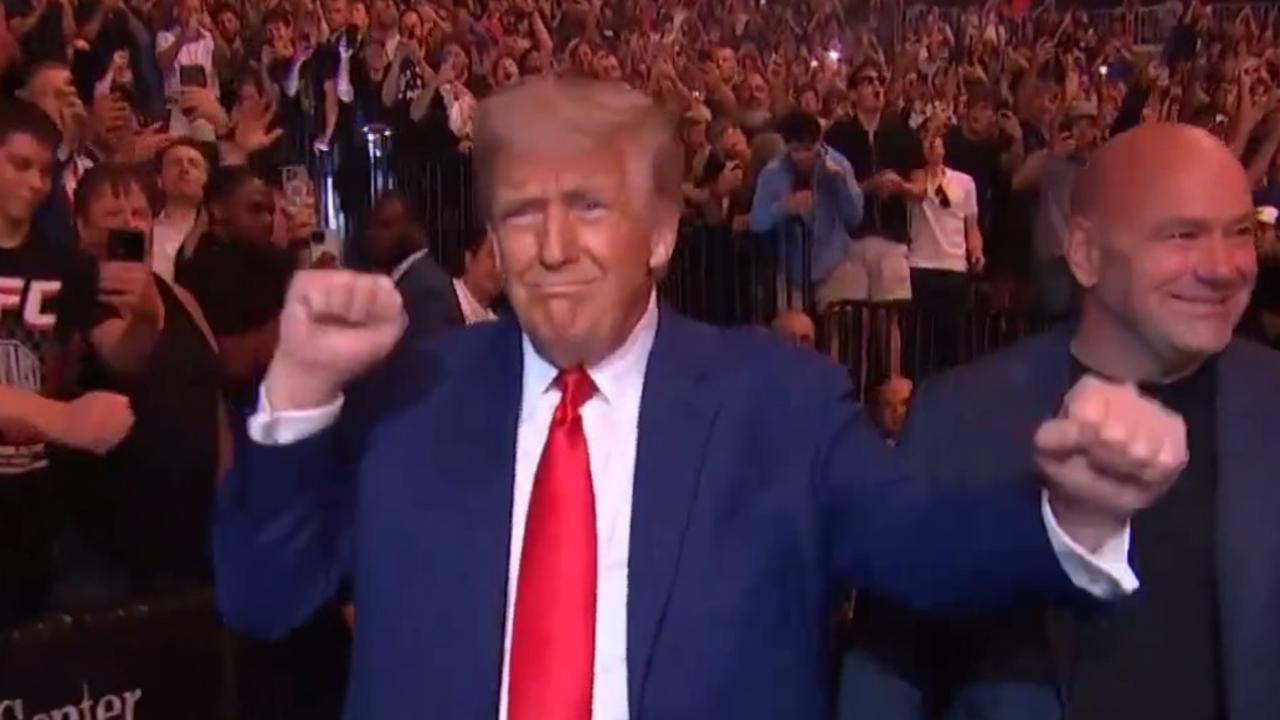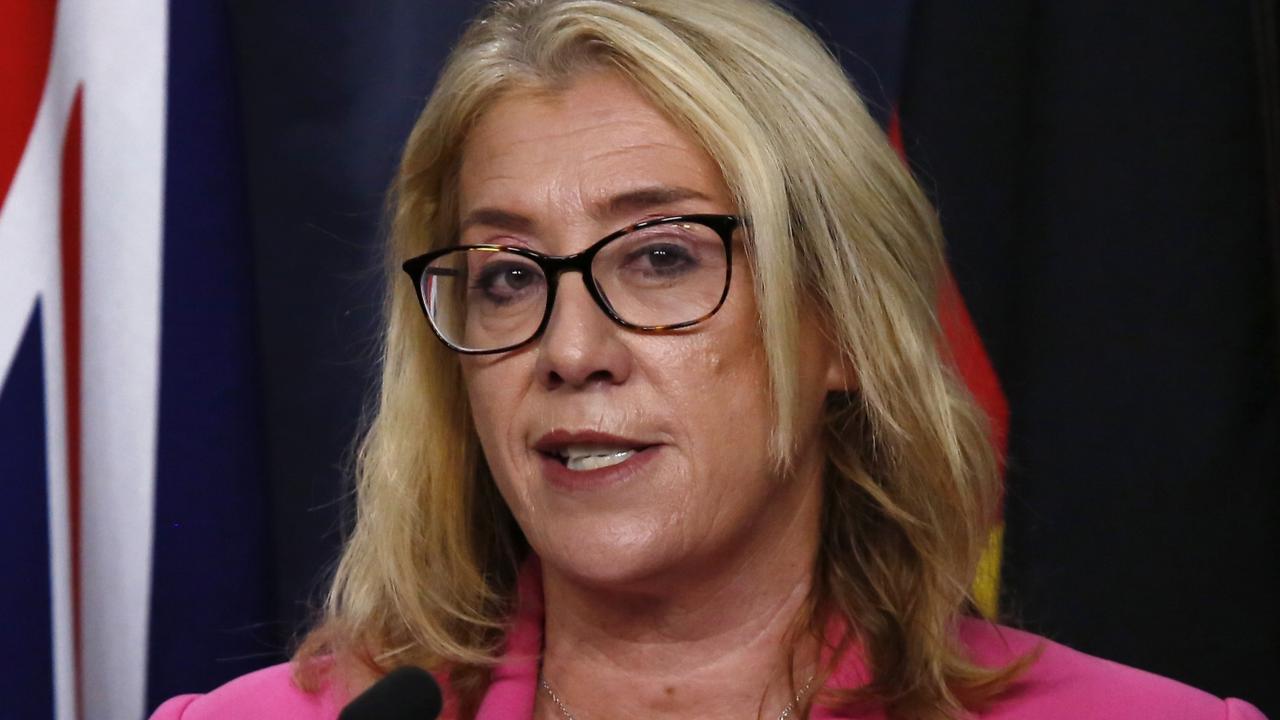Australian UFC pioneer James Te Huna reflects on 20 years in the fight game
AFTER a career defined by a rare kind of toughness, Australian MMA pioneer James Te Huna will hang up the gloves.
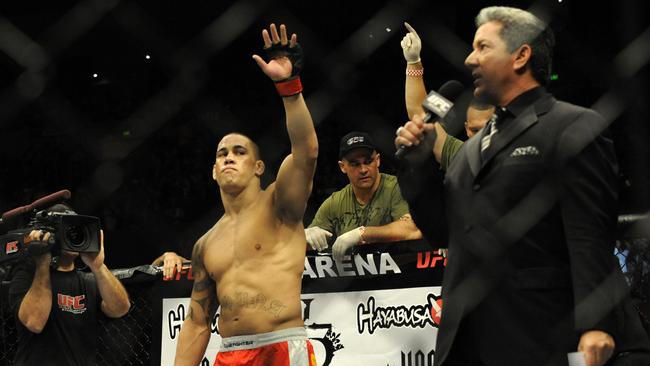
JAMES Te Huna, first fight, was paid $200.
And beer.
Competing up on the Gold Coast because, as he remembers it, that was the only place Mixed Martial Arts was deemed legal in the early 1990s.
And then, only 30 seconds into his debut ... pop.
“Dislocated shoulder,’’ he grins. “I really should have seen that as a sign of what was to come.”
Had he been an NRL footballer, 34-year-old Te Huna would be retiring today with his place among Australia’s toughest athletes confirmed.
But no, he chose MMA.
Which is why so few mainstream sports fans know how this gutsy Penrith slugger beat American Joey Beltran after surviving three rounds, or an agonising 15 minutes, with both a broken hand and foot.
Or that he once dislocated a shoulder and, between rounds, demanded his bulky cornermen slam said joint back into place. Allowing him to fight on, and win.
Indeed, even Te Huna’s UFC debut on a blockbuster Sydney card in 2010 saw him break an arm so badly in the opening round “it sounded like a wet stick snapping in half”.
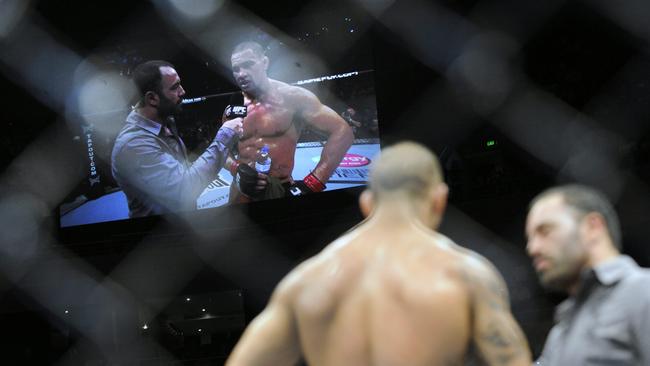
And still, the Sydneysider scored an impressive stoppage against Igor Pokrajac. Again, in the third.
Again, despite his body deeming the result impossible.
So how did he do it?
For while his career may have ended on a run of four losses, Te Huna will forever be remembered as that fighting pioneer who went so much further than anyone, including his body, thought possible.
Sure, he was a gentle giant outside the Octagon. Once donating his entire UFC fight purse to charity.
Yet inside ... well, a rugged stand up game once saw him go five years and 11 fights with only the one loss — against Swedish superstar Alexander Gustafsson.
So again, how did he do it?
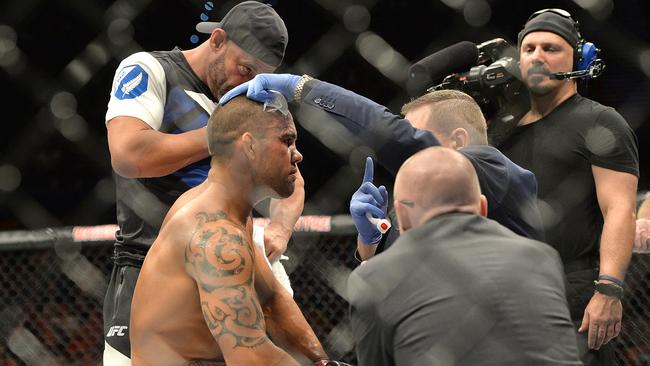
“It’s just how I was brought by the old man,’’ Te Huna shrugs. “Both my brother Tama and I, we were told no matter what happens in life, you go and finish the job. That’s it.
“They’re the rules you play by.”
But what about when you’ve broken hands, arms, feet? Or dislocated shoulders and torn ligaments?
“Again, my old man. Growing up he never let me or my brother show pain. I remember getting hurt as a little kid and dad saying to me ‘don’t you cry, don’t you dare cry’. So I’d be there, wiping tears back saying I was OK. It’s an attitude I’ve carried my whole life. Show no pain. Even if you have to bluff ‘em.”
Talk us through your 2012 fight against Beltran, where you fought three rounds with a broken hand and foot to win a gritty points decision ...
“Yeah, broke my hand on the top of his head, first minute of the fight. He came at me early, a bit quicker than expected, and I tried to paw him off. And my hand, it broke. So then I switched to leg kicks and caught the top of his knee. And my foot broke.”
Tough fight then?
“Tough guy. You only needed touch Beltran and you got injured. The guy is just so awkward. So bony.”
Favourite fight?
“My UFC debut. Against Igor Pokrajac at UFC 110 in Sydney. Beforehand I had really questioned if I even belonged inside the Octagon.”
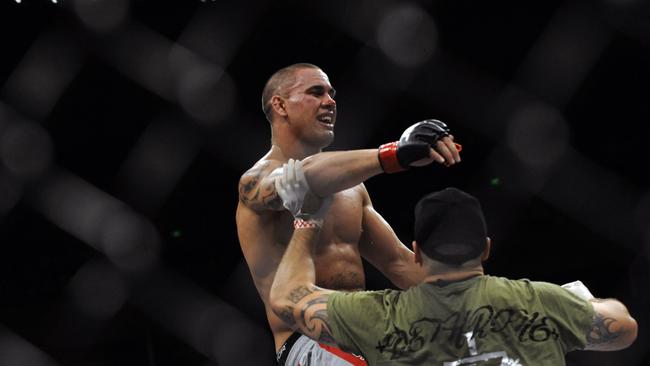
Broke your arm in that one too, right?
“Yeah, I’d raised it early in the first round to block a head kick. And the sound ... it was like a wet stick snapping in half. At first, I thought I’d broken my hand. So I told myself ‘OK it’s only going to be a minute or two before you can’t use this. So start hitting him.”
Still, it went over three minutes into the third ...
“It’s funny, sometimes you’re so focused inside the Octagon you actually forget your hand or whatever is broken. (Laughs) At least until you use it again. But I can still remember the referee in the third telling Pokrajac, protect yourself or I’m stopping this. So I went at it. There wasn’t much in the punches but it was enough for the fight to be stopped.”
How hard to take was your recent run of four losses?
“It’s tough because I’ve been a fighter 20 years. And in that time I’ve given everything I have. Invested everything into this sport. But I was caught in a downward spiral. Couldn’t get out. I tried to pick it up, tried to change it up, but ... it just didn’t work. This is a sport where you have to be right physically and mentally, and I’m just not fit to compete anymore.”
Toughest thing about being a fighter?
“The loneliness.”
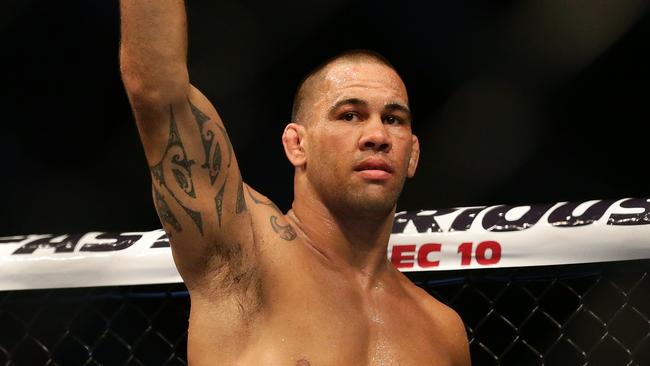
When do you feel lonely?
“Most of the time. Training, preparing, all of it. And then when you walk out to fight ... man, no one is coming to help you. For me, being alone was the hardest thing.”
Against Nate Marquardt, on a UFC Auckland card, you fought despite requiring surgery on a shoulder that had dislocated, fractured and suffered a serious labrum tear in training. Why?
“I was headlining and felt a responsibility to compete. Plus, as I said, I was brought up to go finish the job, no matter what.”
So how do you feel these days to see so many UFC stars dropping off cards, including headline bouts, because of injury?
“I don’t know. That’s up to them, I guess. Certainly there were times in my career where the smarter decision would have been to pull out of the fight. But it’s just not how I was raised.”
At London’s Wembley Arena you stole the show — and went viral — after you and your team, wearing suits and sunnies, danced your way to the Octagon while Men In Black played. How did you come up with perhaps the greatest UFC walkout of all time?
“It actually came about because of a bad situation. We were in London for the fight, me, my training partners and coaches — a group of Alpha Males all together — and to be honest it wasn’t a good environment. Everyone was fighting. Relationships were falling apart around me and, as a result, I wasn’t in a good frame of mind. So that’s when I decided we needed a little dance ...”
But Men in Black?
“I’m a big fan of Will Smith and, when I threw up the Men In Black idea, and all the boys loved it. We went straight out to the shops, bought suits, Ray Bans, the lot. Then every night in those last nine days before the fight we practised in the lounge room. It actually brought everyone together.”
So what’s next for you?
“I’m going to continue doing seminars. But I’d also like to break out and work with athletes in other sports. I’ve been fighting since I was 14 so I believe there is a lot I can teach other athletes about competing.”
Can you believe how far MMA has come in Australia?
“Oh, I never thought the sport would take off like this. When I first started out, everyone thought I was a rugby league player. No one had heard of the UFC, the Octagon, anything. You had to explain it all to them.”
But now?
“(Laughs) These days you don’t need to explain yourself to anyone.”
Originally published as Australian UFC pioneer James Te Huna reflects on 20 years in the fight game


